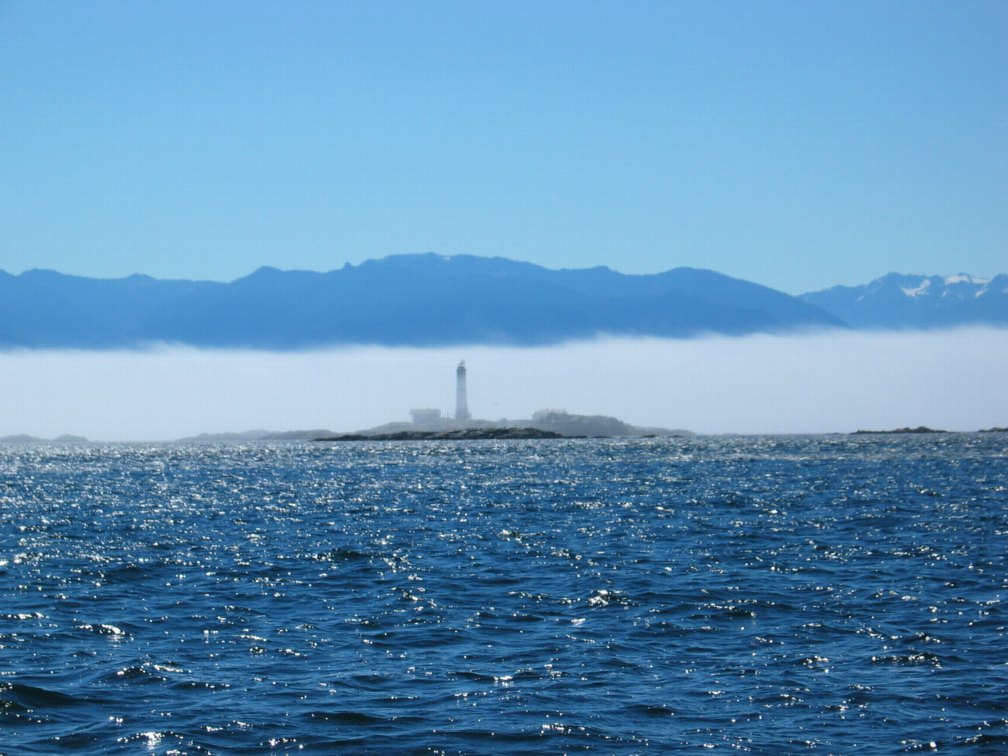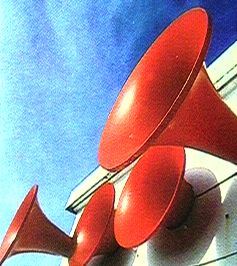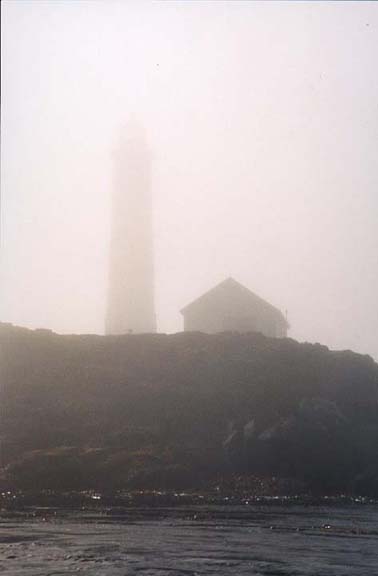Wikipedia lists 9 different types of fog. Race Rocks experiences precipitation fog in the winter and steam fog in the summer. Steam fog occurs when cold air passes over warmer water.
Precipitation fog occurs when clouds of water vapor begin to condense. When the temperature reaches the dew point, vapor condenses to leaves behind small droplets of water. Fog is therefore a source of moisture. See example below: Many animals and plants can survive on the moisture left behind by fog. In tropical areas fog has the greatest effect on the surrounding ecosystem, providing water crucial to the survival of many plants and animals. Fog data for Race Rocks has not been collected , but the precipitation from either steam or precipitation fog is often recorded as a 0.2mm entry on the weekly rain record . An example is shown below.
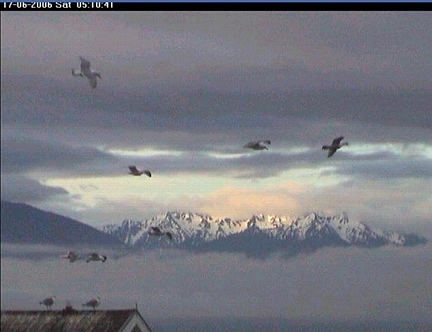 Frequently in the summer, the Strait of Juan de Fuca is blanketed with fog. In this picture, the Olympic Mountains protrude above the fog bank which lies to the south of Race Rocks. (Photo taken June 17, 2006 on the remote camera 5 by PB)
Frequently in the summer, the Strait of Juan de Fuca is blanketed with fog. In this picture, the Olympic Mountains protrude above the fog bank which lies to the south of Race Rocks. (Photo taken June 17, 2006 on the remote camera 5 by PB)
 The opening scenes of this video show how dense the fog was on one trip in June to Race Rocks. The boat was guided by radar.
The opening scenes of this video show how dense the fog was on one trip in June to Race Rocks. The boat was guided by radar.
|
||||
| An early morning sunrise through the fog. | ||||
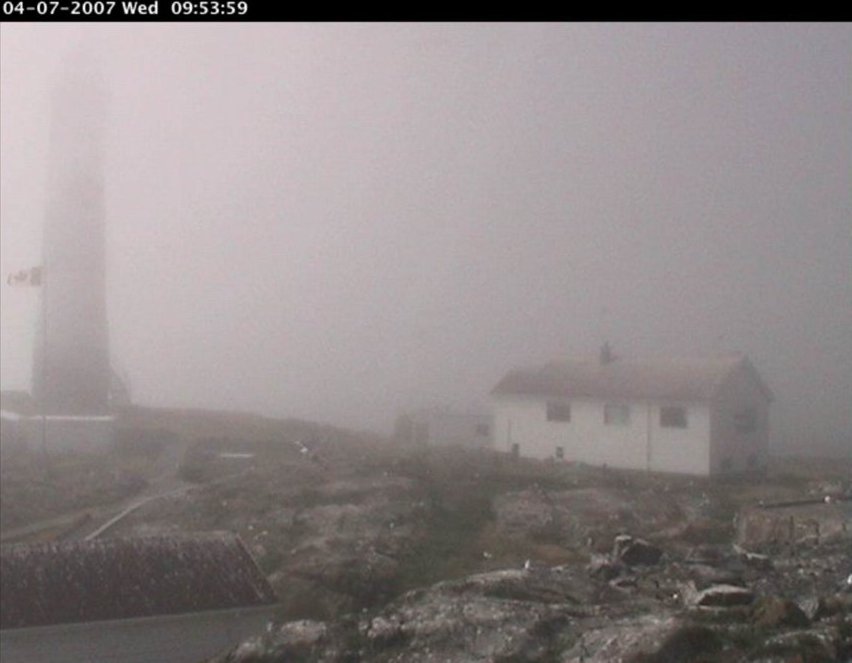 |
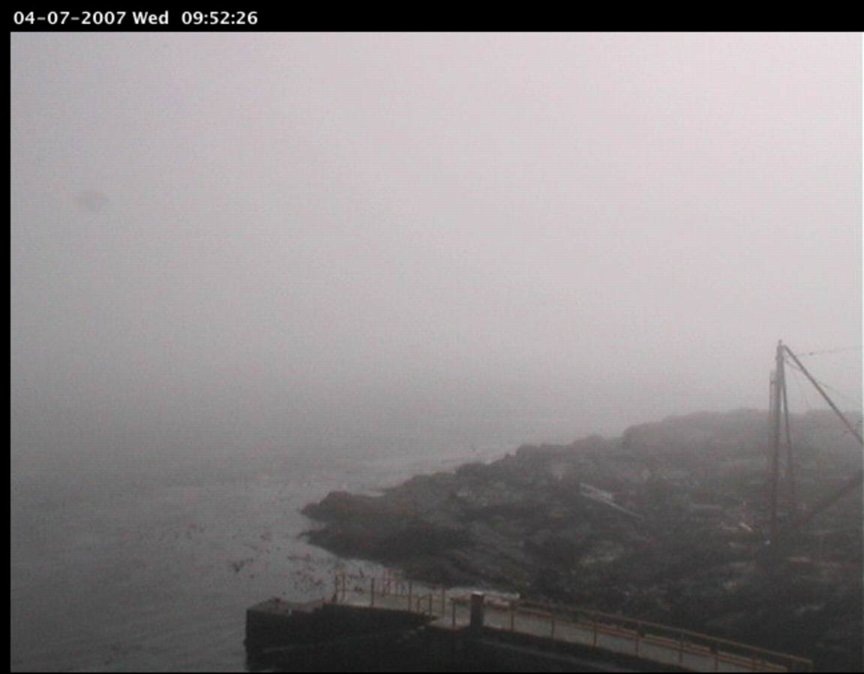 |
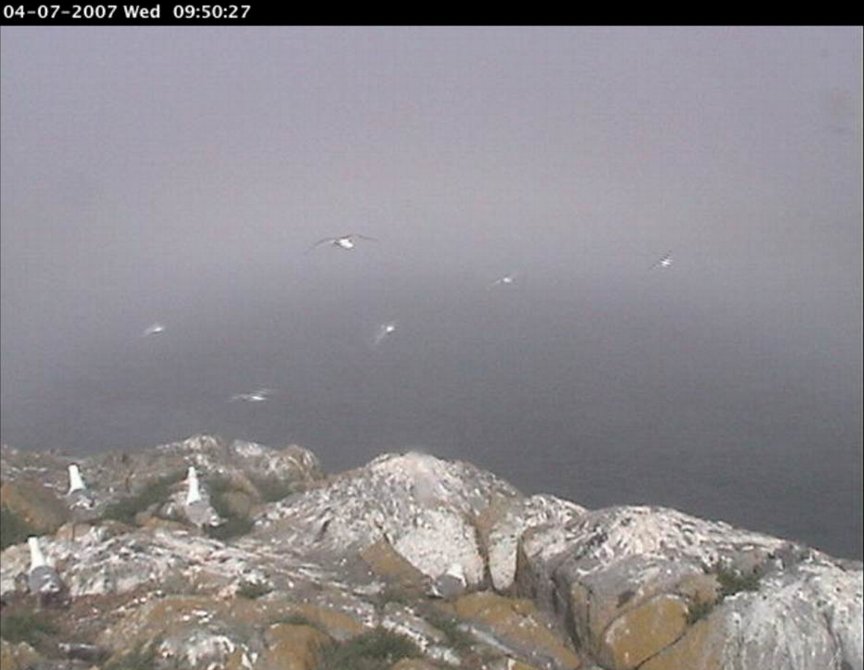 |
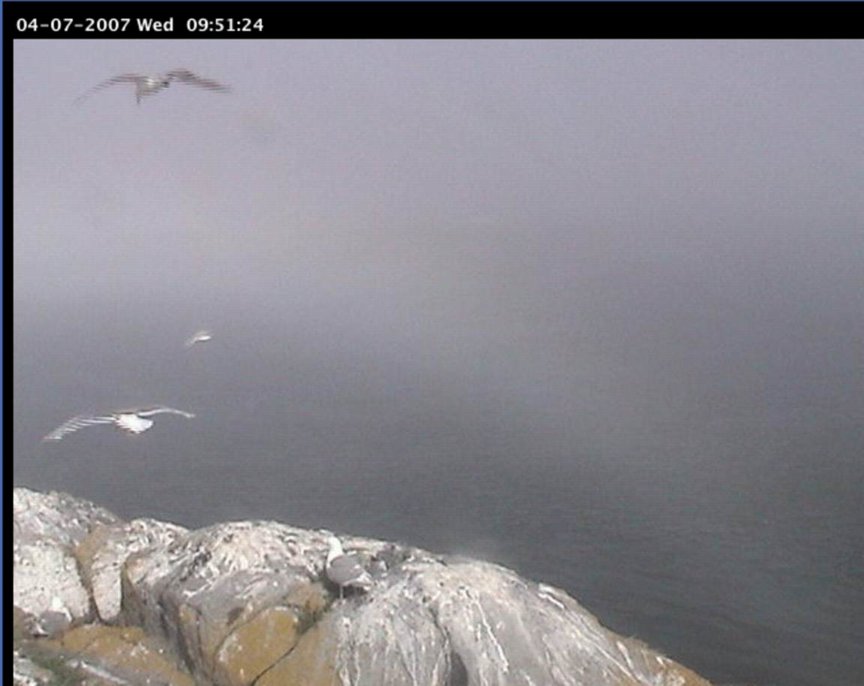 |
|
| At 10:00 AM on July4 2007, this heavy fog enveloped the island. | The sun was totally obscured, even though it was a hot sunny day back in Pedder Bay. | A ” fog arch” could be seen to the west. This is caused by diffraction of light by the water droplets. | It continued down into the ocean. (Photo from camera 5 remote by Garry F) |
See the posts in this log noting the days with fog
SOME INFORMATION ON THE EFFECTS OF FOG ON ORGANISMS
In some coastal areas, tree species receiving the highest amount of pollutants via fog are experiencing damage. 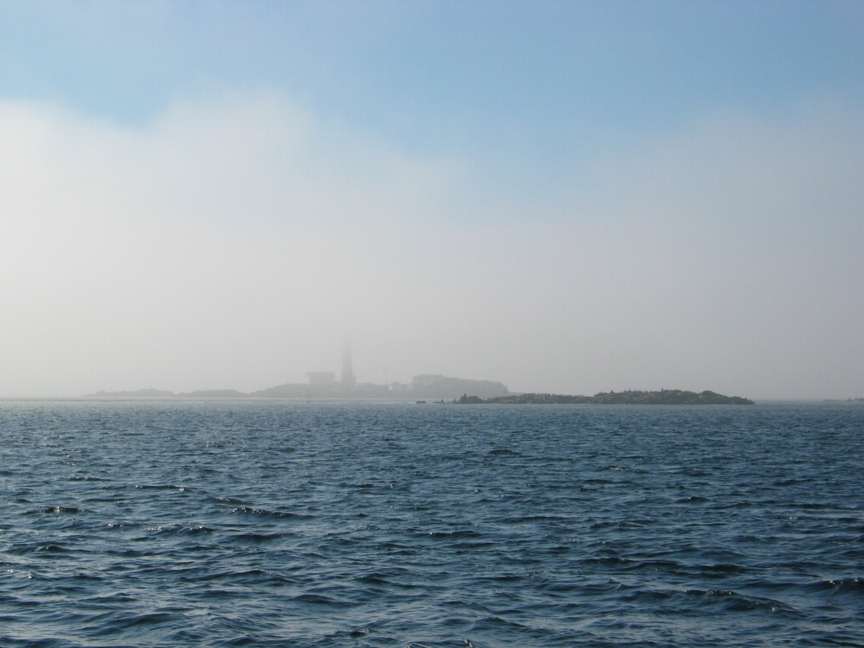 At Race Rocks, in foggy weather, the dried grasses will condense moisture from the atmosphere. This moisture allows the plants to recover from summer drought.On hot summer days the temperature at Race Rocks can be as high as 10 degrees C lower due to the fog compared to the adjacent shoreline of southern Vancouver Island.
At Race Rocks, in foggy weather, the dried grasses will condense moisture from the atmosphere. This moisture allows the plants to recover from summer drought.On hot summer days the temperature at Race Rocks can be as high as 10 degrees C lower due to the fog compared to the adjacent shoreline of southern Vancouver Island.
Below is an example of “the perfect storm” –conditions for the creation of “Precipitation Fog”This particular week in September of 2006 has been chosen to show how we can get “rain” recorded in the tipping bucket sensor at Race Rocks even when there is “no rain in sight” at Race Rocks.. Late Monday evening of Sept 4, 0.2 mm. of precipitation was recorded. 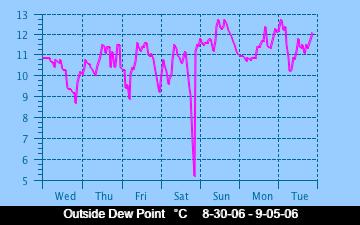 I recall seeing a heavy dew on the fields in Metchosin on that particular morning. At the same time, the dew point was 12.8. The humidity was 100%
I recall seeing a heavy dew on the fields in Metchosin on that particular morning. At the same time, the dew point was 12.8. The humidity was 100%
.
The temperature was at 12.8 degrees C, so the formation of moisture would happen on surfaces on the island. Previously, the light keeper would record this as trace when doing the rain calculation.
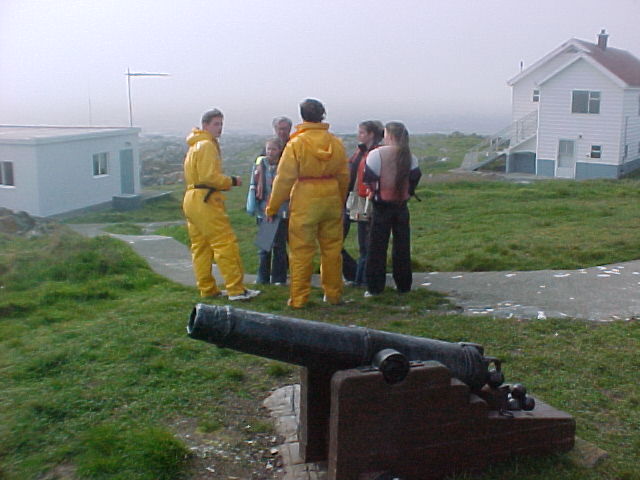 Students at Race Rocks on a foggy day Students at Race Rocks on a foggy day |

